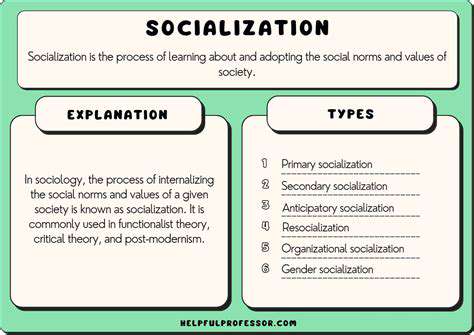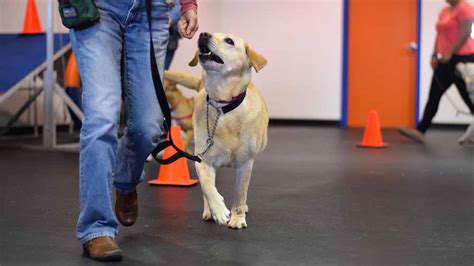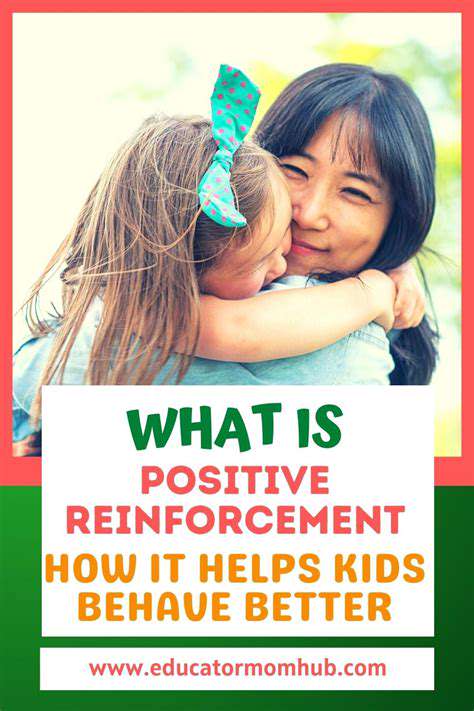Solving Common Puppy Socialization Challenges
Addressing Fear and Anxiety During Socialization
Understanding the Roots of Fear
Fear and anxiety in puppies during socialization are often rooted in early experiences. A lack of positive and controlled exposure to various sights, sounds, and social interactions during their critical socialization period can lead to a heightened fear response. This is not a reflection of the puppy's inherent character but rather a learned reaction, often triggered by negative experiences or a lack of positive reinforcement during these formative stages. Understanding this underlying cause is crucial to effectively addressing the issue.
Puppies who haven't been exposed to diverse environments, other dogs, or people during their crucial developmental period are more likely to develop anxiety-related behaviours during socialization. This doesn't mean the puppy is bad or unsocialisable, it just means their experiences have shaped their reactions. Recognizing this crucial developmental period allows owners to intervene proactively and provide the support needed to overcome these initial anxieties.
Identifying Fear-Based Behaviors
Recognizing the specific signs of fear and anxiety in puppies during socialization is vital for effective intervention. These behaviors can manifest in various ways, including cowering, whimpering, trembling, avoiding eye contact, growling, snapping, or even aggression. Understanding these particular behaviours is key to tailoring your response and creating a safe and positive socialization environment. Pay close attention to body language; subtle shifts in posture, ear position, tail carriage, and facial expressions can all indicate underlying fear or anxiety. Observing and documenting these behaviours allows for a more targeted and effective approach.
Pinpointing the exact triggers is also essential. What sights, sounds, or interactions elicit these fear responses? Is it other dogs, strangers, loud noises, or specific environments? By identifying these triggers, you can create a safe and controlled socialization plan to help your puppy gradually overcome these anxieties. This careful observation will play a key role in preventing further escalation of fear and fostering a positive learning experience.
Developing a Gradual and Positive Approach
Addressing fear and anxiety requires a patient and gradual approach to socialization. Avoid overwhelming the puppy with too many new stimuli at once. Instead, focus on positive reinforcement and desensitization techniques. Start with low-intensity interactions and gradually increase the complexity and intensity as your puppy shows comfort and confidence. Positive reinforcement, like treats, praise, and toys, can motivate and reward calm and accepting behaviour. Building a positive association with new experiences is vital to helping your puppy overcome their anxieties.
Creating a safe and secure environment is paramount. Ensure the puppy feels comfortable and secure during socialization interactions. If the puppy displays signs of fear or anxiety, remove them from the situation and allow them to calm down. Avoid forcing interactions or pushing the puppy beyond their comfort level. Remember, a gradual and positive approach is key to fostering a confident and well-adjusted puppy.
Navigating Encounters with Other Dogs and Animals

Navigating Difficult Conversations
Effective communication is crucial in navigating challenging interactions with others. Understanding the nuances of different communication styles and the potential for misinterpretations is paramount. Active listening and empathy are essential tools for understanding the other person's perspective, fostering a more productive dialogue, and ultimately resolving conflicts more effectively. This includes acknowledging and validating their emotions, even if you don't agree with their point of view.
Often, difficult conversations stem from differing values, beliefs, or needs. Recognizing these underlying factors can help us approach the conversation with greater sensitivity and a focus on finding common ground. By focusing on the specific issue at hand and avoiding generalizations or personal attacks, we can create a more conducive environment for productive discussion.
Understanding Underlying Motivations
In any interaction, understanding the motivations behind the other person's actions or words can significantly enhance our ability to respond effectively. Are they seeking validation? Are they feeling threatened? Are they simply misunderstood? By exploring these potential motivations, we can approach the situation with greater compassion and a more nuanced perspective. This process of understanding the other person's perspective can help us find common ground and build bridges.
Often, underlying fears or insecurities can drive behaviors that might appear aggressive or defensive. Recognizing these underlying factors can allow us to respond with empathy and understanding rather than reacting defensively.
Active Listening and Nonverbal Cues
Active listening is a crucial component in any meaningful interaction with another person. It involves not just hearing the words being spoken, but also paying attention to the speaker's nonverbal cues, tone of voice, and body language. By focusing on these elements, we gain a more comprehensive understanding of the message being conveyed and can respond with greater empathy and understanding. This active listening approach can significantly improve communication and help to de-escalate conflict.
Managing Emotions During Interactions
Emotional intelligence is essential for navigating encounters with others. Identifying and managing our own emotions is crucial in creating a positive and productive atmosphere. When we feel overwhelmed or frustrated, it's important to take a moment to pause, breathe, and center ourselves before responding. This self-regulation allows us to respond with greater clarity and empathy, leading to more constructive conversations. Understanding and managing our own emotions is key to handling difficult conversations effectively.
Building Bridges and Finding Common Ground
Finding common ground is key to resolving differences and building positive relationships. Even in disagreements, there are often shared values or goals that can serve as a foundation for understanding. By identifying these commonalities, we can begin to bridge the gap between different perspectives and foster a sense of collaboration. This process of seeking common ground is essential in any interpersonal interaction.
Respecting Boundaries and Personal Space
Recognizing and respecting personal boundaries is paramount in any interaction. Everyone has their own comfort level and limits. Respecting these boundaries, whether physical or emotional, is essential for fostering healthy relationships and ensuring that everyone feels valued and respected. Creating a safe and comfortable space for both parties is vital in any interaction, allowing for open and honest communication. It's about acknowledging that each individual has their own personal space and emotional needs.
Conflict Resolution Strategies
Effective conflict resolution skills are crucial for navigating disagreements and misunderstandings. Learning to identify the root cause of the conflict, communicate effectively, and find mutually acceptable solutions is essential for maintaining positive relationships. Understanding different communication styles and conflict resolution strategies can help us approach disagreements with a more proactive and constructive mindset. By focusing on solutions rather than blame, we can facilitate a more productive and positive outcome for all parties involved.
Troubleshooting Common Socialization Problems

Common Socialization Issues and Their Solutions
Socialization is a crucial aspect of development, impacting individuals' emotional, social, and cognitive growth. Difficulties in socializing can manifest in various ways, from shyness and anxiety in social situations to aggression or withdrawal. Understanding the root causes of these issues is paramount to creating effective solutions, which often involve a combination of parental support, therapeutic interventions, and fostering social skills. Addressing these problems early can significantly improve a child's overall well-being and future success.
One common socialization issue is the fear of social interaction. This can stem from a variety of factors, including past negative experiences, a lack of confidence, or a perceived lack of social skills. Addressing this issue requires creating a supportive and encouraging environment where children feel safe to engage with others. Building confidence and social skills is key, and this can be achieved through activities like encouraging participation in group settings, playing games that promote interaction, and providing positive reinforcement for attempts at social interaction. It's also important to distinguish between shyness and anxiety disorders, recognizing that professional help may be necessary in severe cases.
Identifying and Addressing Aggression
Aggressive behavior in children can range from mild displays of frustration to more serious acts of hostility. Understanding the underlying reasons behind aggression is crucial to developing effective interventions. This could include unmet emotional needs, a lack of coping mechanisms, or a learned response to difficult situations. Identifying the triggers and addressing them, whether through behavioral therapy or addressing any underlying issues, is essential in fostering prosocial behaviors. It's important to remember that aggression is often a symptom of a deeper issue, requiring a multifaceted approach to resolution.
Addressing the root causes of aggression is often more effective than simply punishing the behavior. This may involve helping the child develop communication skills, problem-solving strategies, and emotional regulation techniques. Parents and educators play a critical role in creating a safe and supportive environment where children feel comfortable expressing their emotions and resolving conflicts constructively. Seeking professional guidance from therapists or counselors can be invaluable in tailoring interventions to individual needs and circumstances.
Improving Communication and Social Skills
Effective communication and strong social skills are essential for navigating the complexities of social interaction. These skills enable individuals to express themselves clearly, understand others' perspectives, and build positive relationships. Children who struggle with communication often face difficulties in social situations, leading to feelings of isolation and frustration. Helping children develop these skills can be achieved through various activities, from role-playing scenarios to participating in group discussions. Developing these skills equips children with the tools they need to succeed in various aspects of life.
Encouraging empathy and understanding in children is crucial in developing their social skills. Activities that promote perspective-taking and understanding different viewpoints can significantly enhance their ability to navigate social interactions effectively. Promoting a culture of respect and understanding within families and educational settings can contribute to the development of these vital social skills.
Providing opportunities for children to interact with others and practice social skills in a safe and supportive environment is paramount. This can include structured activities, playdates, or extracurricular engagements. Ultimately, nurturing social skills fosters a sense of belonging and facilitates a positive experience within social settings.
Read more about Solving Common Puppy Socialization Challenges
Hot Recommendations
- The Impact of Early Socialization on a Dog's Interaction with Other Animals
- Car Travel and Puppy Socialization: Making the Journey a Positive Experience
- The Importance of Early Environmental Exposure for Puppy Development
- Taking Your Puppy to the Vet: Positive Socialization Strategies
- Making Training a Positive Experience for Your Puppy
- Public Transportation and Puppy Socialization: A Step by Step Guide
- Safe Socialization: Allowing Others to Pet Your Puppy
- Helping a Puppy Who Struggles with "Stay"
- Positive Puppy Interactions: Making Meetings with New Friends Fun
- No Treats Needed? Training Basic Commands with Verbal Praise











